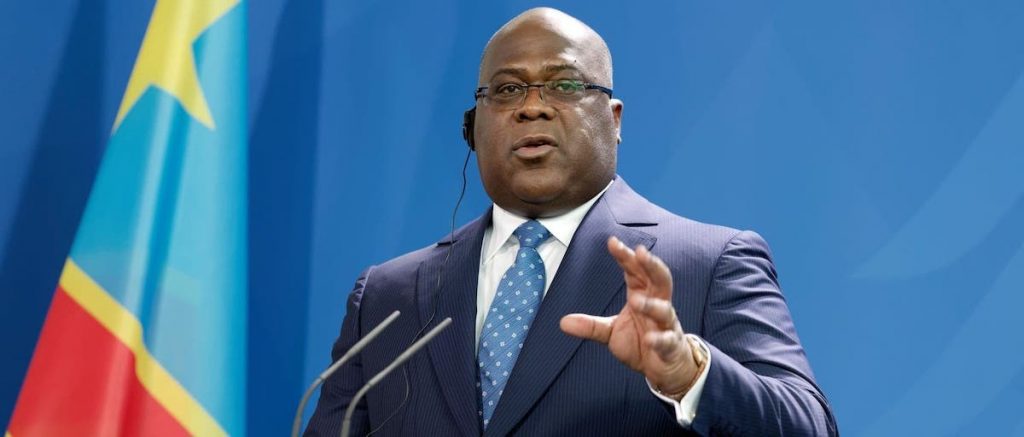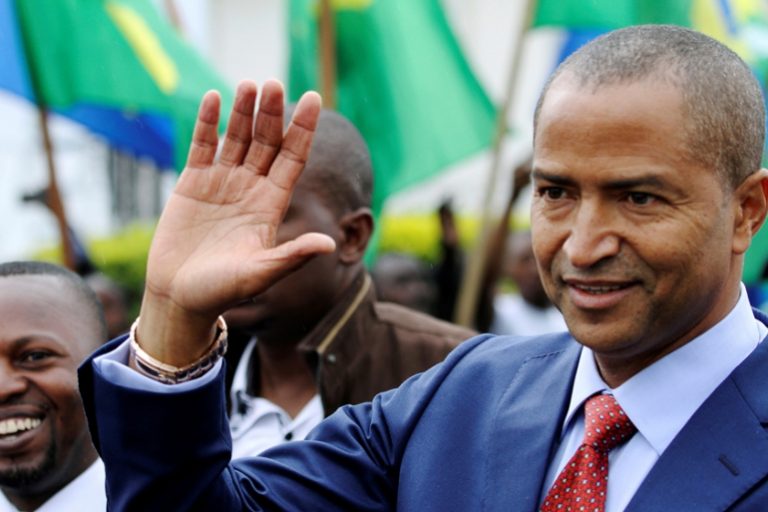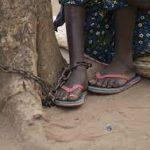The DRC authorities are trying to update legislative pattern to guarantee the victory of sitting president Tshisekedi through blocking competitive political opponents from rally. This move could endanger the DRC security because of ethnic discrimination in the volatile country.
Early in July 2021, Noel Tshiani, a 2018 presidential candidate, supported by some members of parliament, proposed amending the legislation governing eligibility for high office in the DRC. According to his proposal presidential candidates or heads of the state institutions such as the National Assembly and the Senate should be originally citizens born of the DR Congo parents. Noel Tshiani said: ‘My proposition… aims to restrict access to the role of President of the Republic, which should be reserved exclusively for Congolese people born of a Congolese father and mother’.
This draft law targets the presidency ahead of the next presidential election in December 2023.
Tshiani is close to sitting President Felix Tshisekedi. Both men are from the Kasai region. The UDPS (presidential party) and President Tshisekedi want to exclude potential presidential candidates by instrumentalizing the nationality law.
The draft law was submitted to the parliament by MP Nsingi Mpululu, the Common Front for Congo (FCC), which supports Tshisekedi’s predecessor and arch-rival Joseph Kabila.
A draft law introduced in the Democratic Republic of Congo parliament would tighten up the nationality requirements for the head of state and rule out potential candidate Moise Katumbi. Moïse Katumbi was born on 28 December 1964 to a Congolese mother and a Sephardic Jewish father from Greece, Nissim Soriano. Katumbi’s father fled Rhodes Island in 1938 with his two sisters after the introduction by the Italian fascist regime of the discriminatory Racial Laws (Rhodes had been under Italian occupation since 1912). He settled in Katanga, the Congo, a Belgian colony at the time. Katumbi’s mother was of Kazembe royalty of the Lunda people. His grandfather was Mwata Kazembe XIV (Chief of the Lunda kingdom). In 2006, Katumbi was elected as a deputy in the National Assembly. He was the first democratically elected Governor of the Katanga Province in January 2007. On 2 January 2018, Katumbi declared his candidacy for president for the 2018 DR Congo general election. However he has lashed out at the government of the Democratic Republic of the Congo after being barred from entering the country where he is expected to lodge his papers to participate in December’s long-delayed presidential election. The wealthy businessman, who has been living in self-imposed exile since 2016, had originally planned to fly from South Africa to Lubumbashi, the capital of Katanga province. Katumbi was convicted in absentia in 2016 for alleged real estate fraud. He has also been accused of hiring mercenaries and possessing dual nationality, which is not permitted under DRC law.
Potential candidate Katumbi, a key political figure and former governor of Katanga in the southeast, denounced the draft law.
Still, some hold that the DRC is under the threat of infiltration from its neighbours, mainly, Rwanda. It has contributed to the flare-up of hate speech against those perceived as being foreigners.
Some civil society organizations and the United Nations Organization Stabilization Mission in the DRC, MONUSCO, warn that the proposed law threatens the DRC’s stability. MONUSCO chief, Bintou Keita, called on political players to work towards inclusive and peaceful elections and be mindful of the dangerous consequences of the citizenship debate ahead of the 2023 polls.
The proposed law lobbyists argue that it seeks to protect the presidency and prevent alleged foreigners or Congolese with dual citizenship from taking the post of the head of the state. They say it will protect the DRC’s sovereignty and limit the risk that bi-nationals might not remain loyal to the country’s interests.
Those who oppose the amendment say that it violates the constitution warning against any discriminatory policy. It is also divisive and exclusionary and could ignite conflict and damage national cohesion. They see the proposed law is an opportunistic move to mobilize support and revive the political ambitions of its promoters.
The DRC joins several other countries whose laws and policies have been tweaked before elections to knock out political adversaries. Benin and Senegal have experienced similar situations. Their governments passed legislation that political opponents said distorted the competitive democratic process. Such amendments can also threaten national security.
The debate over the proposed law must be seen in the context of DRC’s current political setting, with its newly formed majority in the National Assembly and Senate. Both houses are in favour of the government remaining in control.
At the same time, prominent political actors are starting to position themselves ahead of the 2023 polls. Most of them are devising strategies to maximize their chances of remaining at the helm of, or close to, power. Those allied to President Félix Tshisekedi might want to help him retain office beyond 2023. Even though he hasn’t made any public statement on the debate, his supporters may believe that he stands to benefit from the new legislation.
Questions about political actors’ nationalities aren’t new in the DRC. Former president Joseph Kabila’s rise to power fuelled speculation over his citizenship. Former Prime Minister Samy Badibanga and former governor of the mineral-rich province of Katanga, Moise Katumbi, have also been targeted. As it was for Alassane Ouattara in Côte d’Ivoire, Katumbi’s supporters believe their leader is being singled out, and are threatening to quit the ‘sacred union’ if the law is passed.

Read also: DRC on the verge of a crisis
The ones who lobby the new law must keep in mind that the political manipulations on communities’ differences, including citizenship, are a key reason for hostilities. The DRC has been already experiencing community violence in the Tanganyika, Ituri and South and North Kivu provinces. Fears that the Eastern DRC will fragment have contributed to the crisis in Minembwe, South Kivu province, prompting clashes between local communities and the Banyamulenge, who are considered as ‘foreigners.’
If the proposed candidate citizenship law is adopted, it would fuel the existing insecurity in those provinces, and undermine much-needed national cohesion. It would lead to political uncertainty when the government and its external partners are trying to consolidate fragile peace-building gains and set the DRC on a sustainable path.
In the short term a Congolité law might have emotional appeal as a mobilizing slogan for political advantage. However, in the medium to long term, it is a recipe for disaster.



